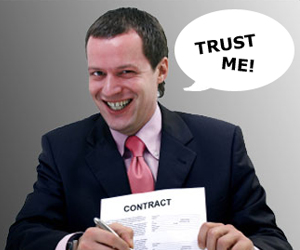For timeshare owners looking to exit their contracts, the resale market can appear as a solution to relieve them of their financial burden. However, it’s important to be aware of the risks and potential scams associated with the resale market. In this article, we will delve into the world of timeshare resale market scams, exposing the tactics used by fraudulent actors and offering insights on how to protect yourself from falling victim to them.
1. Upfront Fees
One of the most common scams in the timeshare resale market involves upfront fees. Scammers pose as resale companies and request an upfront payment to list or sell the timeshare. Once the payment is made, the scammer disappears, and the timeshare remains unsold. Legitimate resale companies typically do not charge upfront fees.
2. False Promises of Quick Sales
Scammers often promise quick and guaranteed sales, luring owners with the prospect of a fast and hassle-free transaction. In reality, the timeshare resale market is highly competitive and unpredictable. Genuine sales can take months, if not years, to materialize.
3. Fake Buyer or Renter Inquiries
Scammers may pose as potential buyers or renters, expressing interest in the timeshare. They might request personal and financial information from the owner, which can be used for identity theft or other fraudulent activities. It’s essential to verify the legitimacy of any inquiries before sharing personal information.
4. Phony Resale Companies
Some scammers create fake resale companies with professional-looking websites and impressive credentials. These fictitious companies appear legitimate but have no intention of actually selling the timeshare. Due diligence is crucial to verify the authenticity of any resale company.
5. Pressure to Act Quickly
Scammers often use high-pressure sales tactics, insisting that owners must act quickly to secure the sale or rental. The sense of urgency can cloud judgment and lead to impulsive decisions.
6. Resale Guarantees with Strings Attached
Fraudulent resale companies may offer guarantees of a successful sale but impose hidden conditions or fees that negate the assurance. Read all terms and conditions carefully to avoid falling into such traps.
7. Request for Deeds and Ownership Documents
Scammers may request owners to send their deeds or ownership documents as part of the resale process. Once in possession of these documents, the scammer can attempt to fraudulently transfer the ownership or use the documents for malicious purposes.
8. Inadequate Marketing and Promotion
Some fraudulent resale companies promise to market the timeshare aggressively but fail to deliver on their commitments. In many cases, owners are left with empty promises and an unsold timeshare.
9. Escrow Scams
Scammers may suggest the use of an escrow service for the transaction, where the funds are held until the sale is completed. However, they direct owners to an illegitimate escrow service under their control, allowing them to steal the funds and disappear.
10. Unsolicited Contact
Beware of unsolicited calls, emails, or letters from resale companies claiming to have buyers or renters ready for your timeshare. Genuine resale companies do not typically initiate contact in this manner.
Protecting Yourself from Resale Market Scams
To protect yourself from resale market scams, consider the following precautions:
a. Verify the Resale Company: Research the resale company thoroughly, checking for reviews, ratings, and any history of complaints. Contact the Better Business Bureau or relevant consumer protection agencies for information.
b. Refuse Upfront Fees: Avoid any resale company that requests upfront fees to list or sell your timeshare.
c. Be Skeptical of Guarantees: Approach guarantees of quick sales with skepticism and carefully read the terms and conditions of any guarantees.
d. Use Escrow Services with Caution: If an escrow service is recommended, choose one independently and verify its legitimacy.
e. Consult Legal Counsel: Consider consulting with a timeshare attorney to review resale contracts and provide guidance throughout the process.
f. Trust Your Instincts: If something seems too good to be true or if you feel pressured, trust your instincts and proceed with caution.
Conclusion
The timeshare resale market is not without its risks, with numerous scams that prey on owners seeking to sell their timeshares. To protect yourself from falling victim to these scams, conduct thorough research, refuse upfront fees, be cautious of guarantees, use escrow services with caution, consult legal counsel, and trust your instincts. By taking these precautions, you can navigate the resale market more safely and increase the chances of a legitimate and successful transaction.




